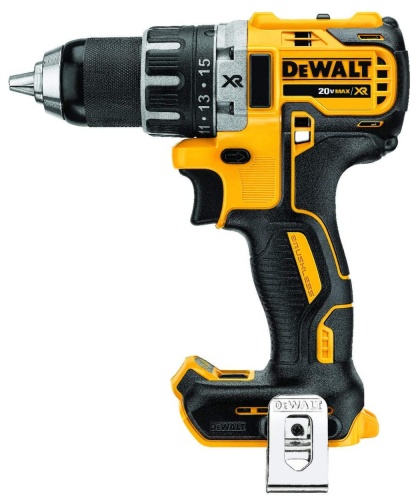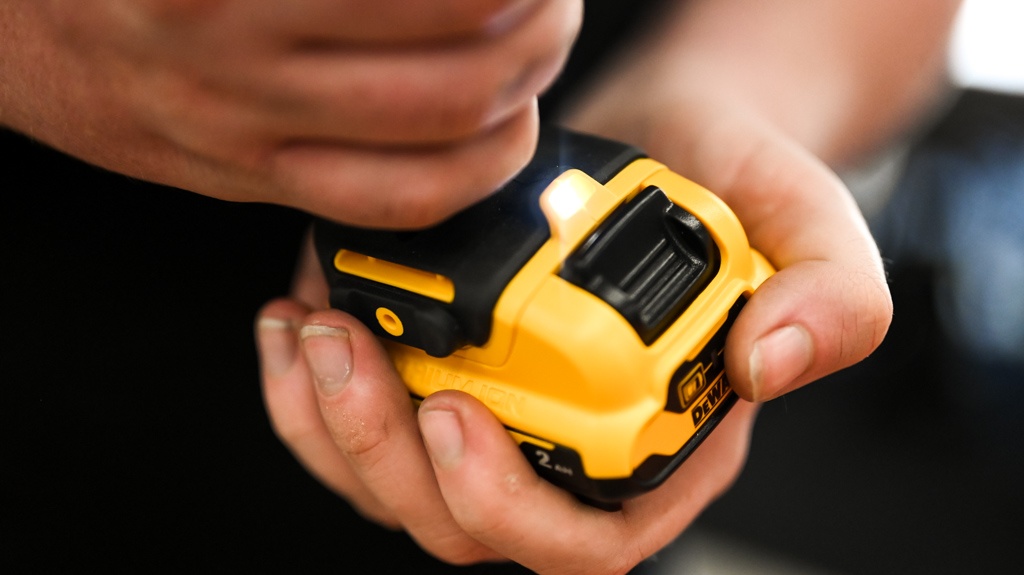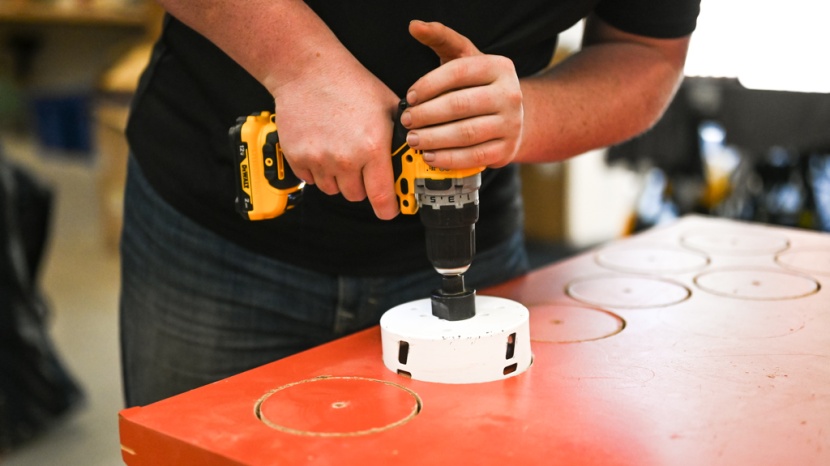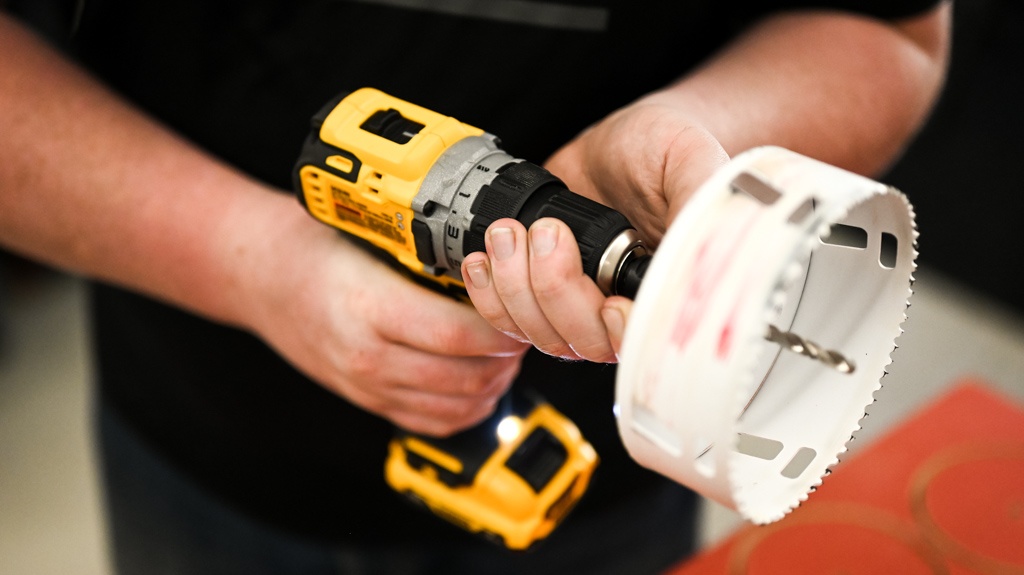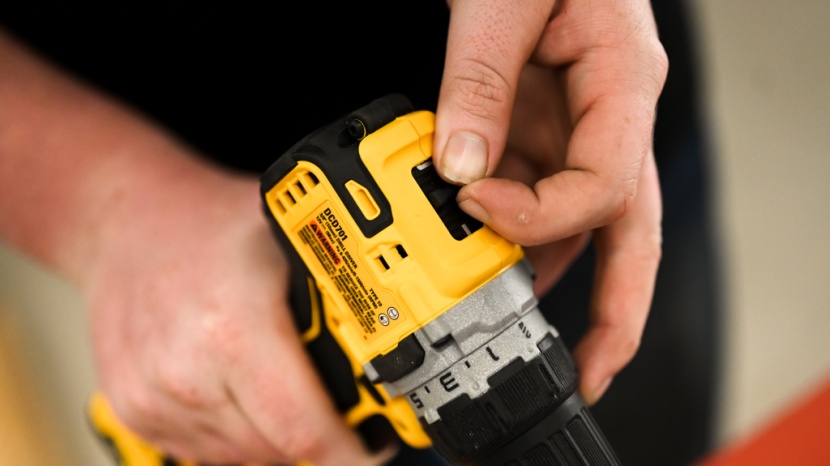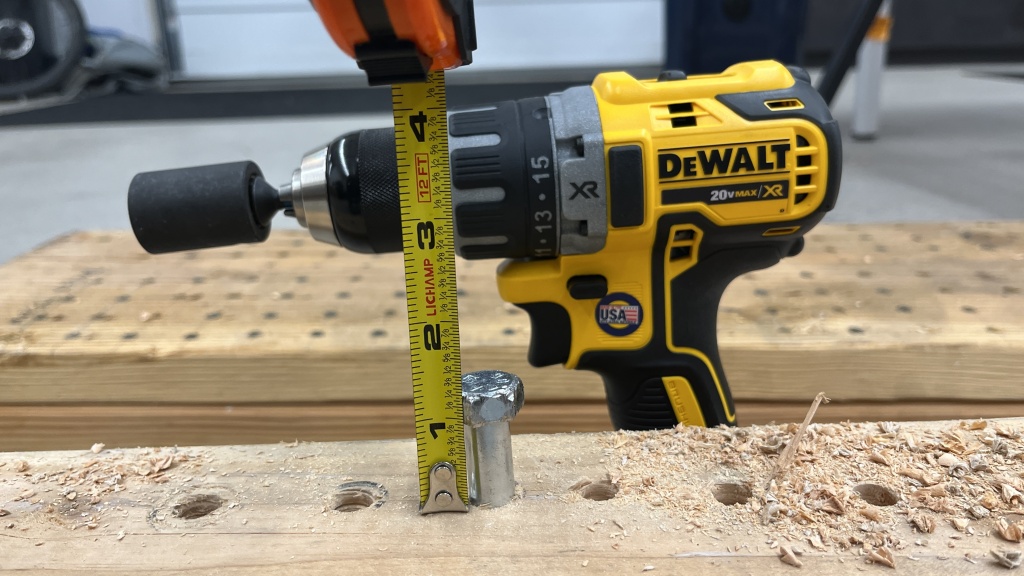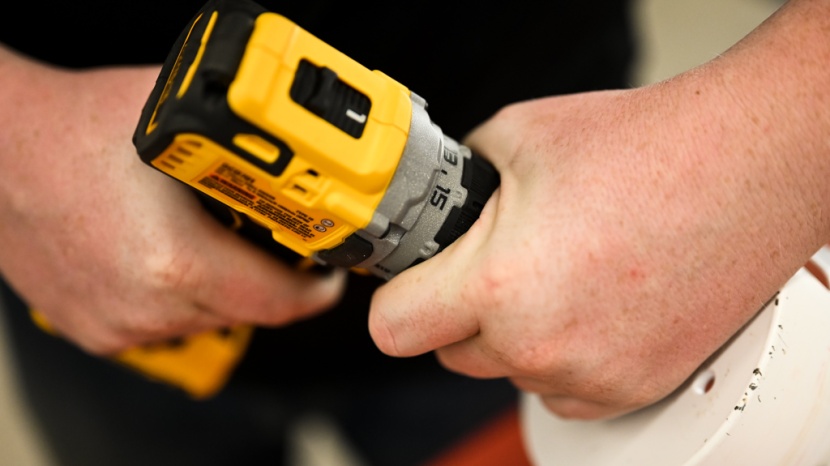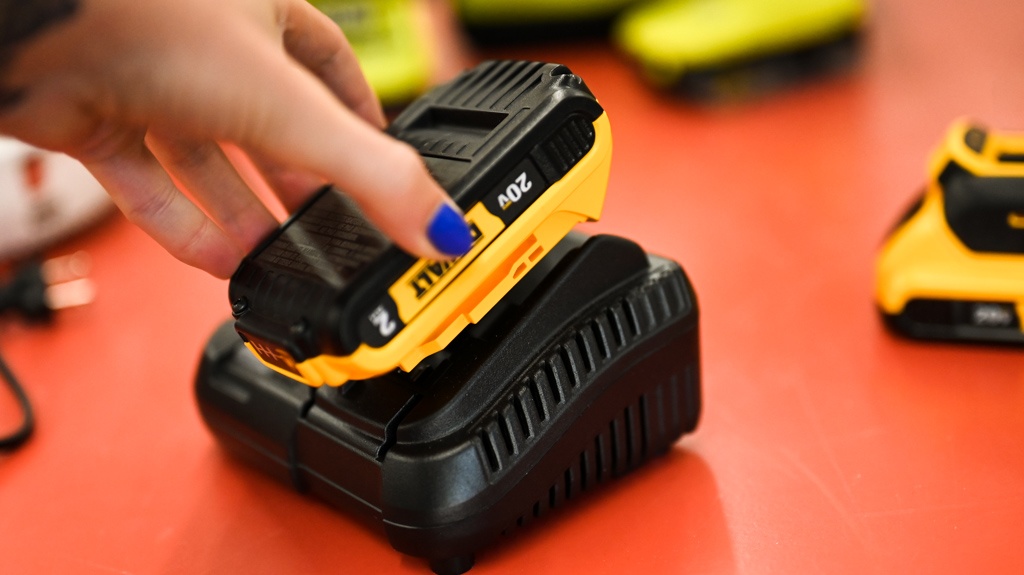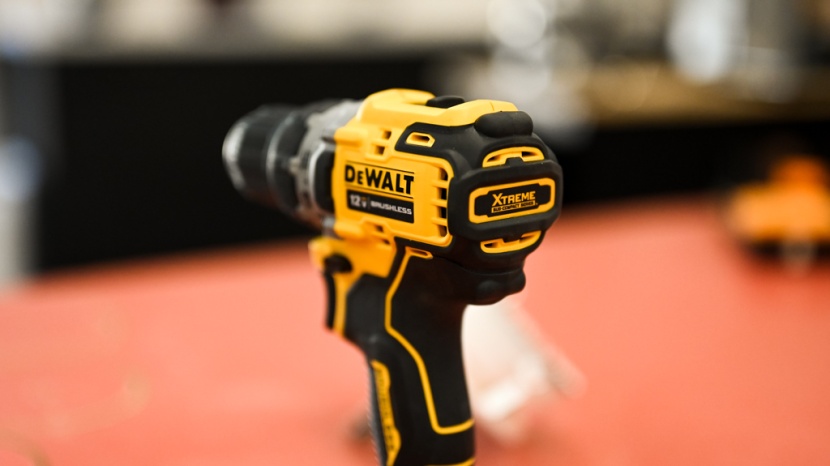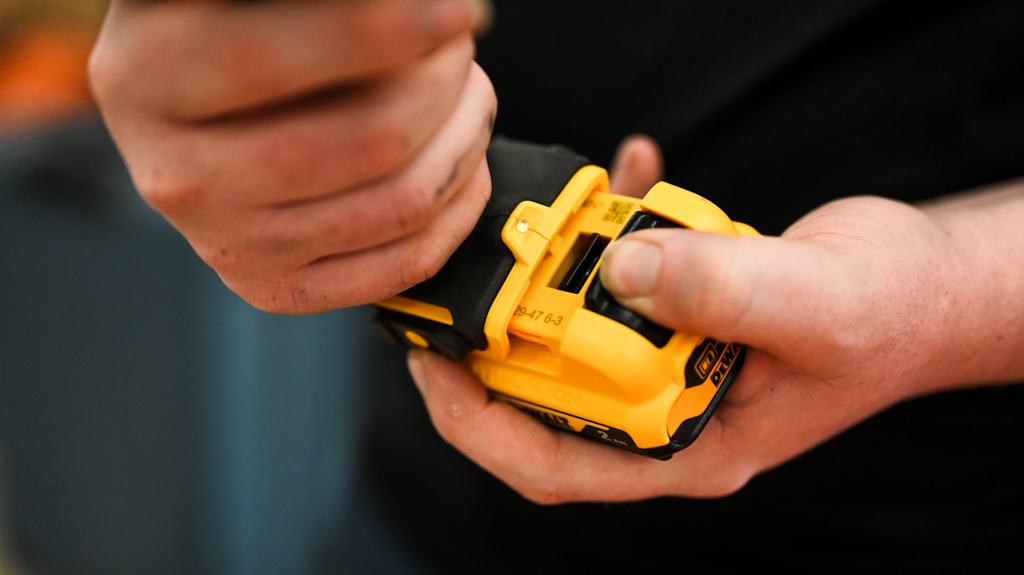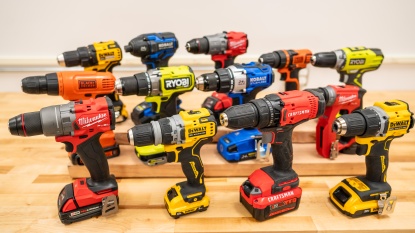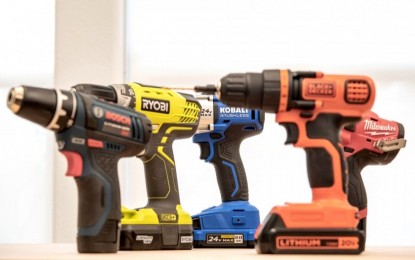DeWalt 20V XR Brushless DCD791B Review

Our Verdict
Our Analysis and Test Results
Drilling
The DeWalt 20V XR Brushless DCD791B performed very well in our drilling tests. Working through a 1 ¾" solid wood door, the DCD791B completely bored a 5" hole in 25 seconds — one of the fastest times that we've seen. When we used the 1" paddle bit to drill through a stack of 2" x 12" boards, this model struggled about halfway through but quickly finished the job when we shifted it into low gear.
The DCD791B easily shot holes in a 16-gauge metal sheet in about a second using a 1/4" bit. When we moved up to the ½" bit, it took about 2-3 seconds per hole, making it one of the speediest models to complete this task.
Driving
The DCD791B fell a bit behind the pack leaders in driving performance, though it still wasn't bad.
The DCD791B did a fantastic job driving deck screws. It was no problem to get the 3" screws flush with the lumber. You can dial the clutch down to the perfect gear to make sure you get a perfect sink every time for the material you're working with. Most of all, we loved the trigger control.
When we performed the lag screw test with this model is where we ran into problems. With the 5" lag screw, the DCD791B left more than an inch of the screw unsunk. Even after backing the screw out and trying to ram it home or pulling the trigger repeatedly, this model failed to complete this task.
Battery Life
The DCD791B didn't exactly knock it out of the park for this portion of our total score, but it performed fairly well.
We drained the battery performing a deck screw & paddle bit assessment, and the DCD791B was able to complete 6.5 sets of 14 screws and three holes. This was average for the group, but on the upside, this model's battery was completely charged in 34 minutes, which we consider pretty great.
Convenience
The DCD791B received some serious convenience points from our team. Weighing 3 lbs 6 oz, the XR Brushless DCD791B is on the lighter end of 18-volt drills. We love that there is an included belt clip and that you can attach it to either side of the drill.
Where this model really stands out from the competition is its LED light. The light produces a massive lighted area. The brightness of the LED light can be adjusted between low, medium, and high settings, and the various brightnesses stay illuminated for different lengths of time. If need be, you can leave the light switch turned on so that the drill can be used as its own standalone work light. After 20 minutes, the light will turn off automatically.
Should You Buy the 20V XR?
The DeWalt 20V XR Brushless DCD791B is an impressive drill. It held its own in nearly every aspect of our testing process. It drills quite well, has a decent charge time, and has one of the best LED lights of any drill we've ever seen. If you want a high-performance drill and value seeing your work area, we say go for it.
What Other Drill Should You Consider?
The main thing to consider when shopping for a drill is what purpose the drill will serve. If you only need a bare-bones drill but also want a tried and true brand, definitely check out the Craftsman V20 1/2-In. Drill/Driver Kit CMCD700C1. If you think you'd like to have some cutting-edge technology that's wrapped up into a smaller body and is substantially lighter than this model, look at a 12-volt version. We highly recommend the Bosch 12V Max Drill/Driver Kit PS31-2A. If you know that you want powerful and quick drilling capabilities coupled with a long-lasting battery that charges quickly, look no further than the Milwaukee M18 Fuel 1/2" Drill Driver. The M18 has wrecked the competition in nearly every side-by-side comparison we've ever run.


